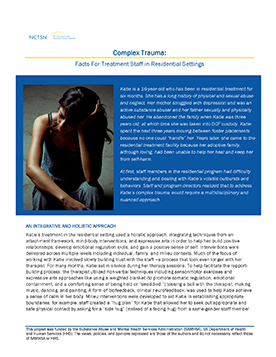
Complex Trauma: Facts for Treatment Staff in Residential Settings
Details the importance of a holistic, multidisciplinary, multi-level approach to addressing the needs of youth with complex trauma in residential treatment settings.
The following resources on Complex Trauma were developed by the NCTSN.

Details the importance of a holistic, multidisciplinary, multi-level approach to addressing the needs of youth with complex trauma in residential treatment settings.
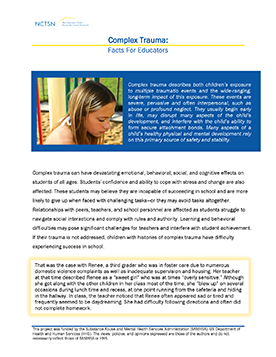
Helps educators and school staff recognize the signs and symptoms of complex trauma and offers recommendations on how to help students heal.
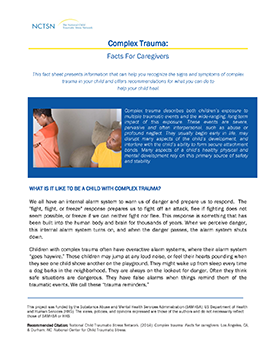
Helps parents and caregivers recognize the signs and symptoms of complex trauma and offers recommendations on how to help children heal.
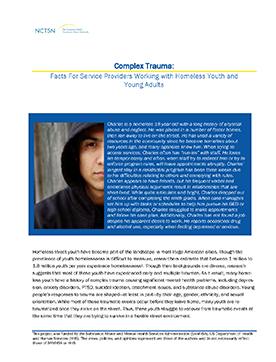
Offers information to service providers on how to support teens and young adults who are experiencing homelessness with a trauma history.
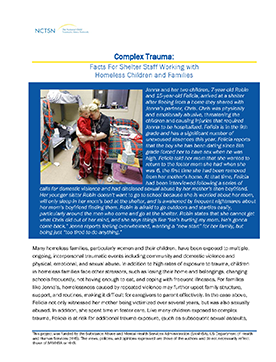
Guides shelter staff in offering support to children and families who are experiencing homelessness and who have experienced trauma.
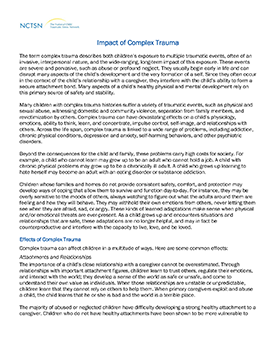
Offers information about complex trauma. This fact sheet details the impact of complex trauma, the effects of complex trauma, the long-term health consequences, and the economic impact of complex trauma.
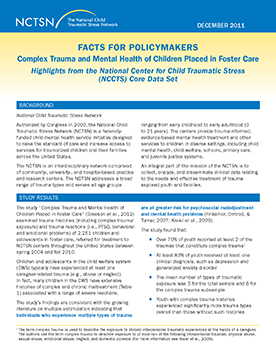
Describes the complex trauma and mental health of children placed in foster care among NCTSN care recipients as well as policy recommendations.
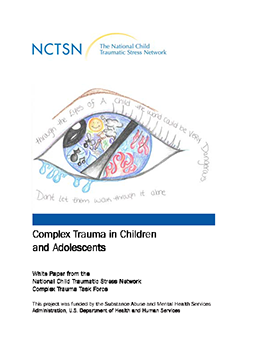
Provides an overview of complex trauma in children and adolescents.
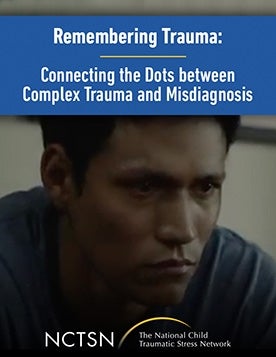
Highlights the story of a traumatized youth from early childhood to older adolescence illustrating his trauma reactions and interactions with various service providers.